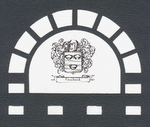I write this while visiting the home of my son-in-law and daughter, Maj. Mark and S
 hiloh Hand, at the Marine Corps Air Ground Combat Center in Twentynine Palms, California. My family and I have come here for the base’s big Fourth of July celebration, in the expectation that one could hardly find a better place to celebrate Independence Day. Mark, who has spent two lengthy tours of duty in Iraq, is now in the field here at this Mojave Desert base coordinating a training program for Iraqi military trainers. He’s a remarkable leader both on the field of earthly battle and in spiritual warfare.
hiloh Hand, at the Marine Corps Air Ground Combat Center in Twentynine Palms, California. My family and I have come here for the base’s big Fourth of July celebration, in the expectation that one could hardly find a better place to celebrate Independence Day. Mark, who has spent two lengthy tours of duty in Iraq, is now in the field here at this Mojave Desert base coordinating a training program for Iraqi military trainers. He’s a remarkable leader both on the field of earthly battle and in spiritual warfare.Yesterday, after returning from a late-night session wisely mediating a conflict in his church, he introduced me to an old devotional book, Morning Exercises for the Closet for Every Day of the Year, written in the early 19th century by a British cleric, the Rev. William Jay (1769-1853). While he is not well known, some consider him second only to Charles Spurgeon among English preachers. This devotional book, companion of Jay’s Evening Exercises..., is reminiscent of Spurgeon’s classic Morning and Evening devotional book.
On the eve of the annual celebration of our nation’s independence, I am perusing Jay’s meditations for July 3 and 4, brief studies of a phrase in the Old Testament book of Judges, chapter 8, verse 4: "Faint, yet pursuing." The passage concerns a reluctant but obedient military leader of the ancient Hebrews, Gideon.
Jay’s devotionals for July 3 and 4, although written as an exercise of encouragement for spiritual warfare, contain language which I find to be a remarkable admonition for our country in the present prosecution of the war against the implacable enemies of both our faith and our cherished civilization.
Following are excerpts which should be taken to heart by our citizens and our leaders in this critical time when many are more inclined to faint than to pursue:
-------------
[July 3] — What war is there that has in it nothing to depress, nothing to animate, and that does not furnish a diversity of feelings in those who carry it on?
Yes; while engaged in this good fight ... they may be faint. We need not wonder at this, if we consider the enemies they have to vanquish. ... If we also consider the qualities of their adversaries, their number, their malignity, their power, their policy, their success, for they have cast down many mighty, yea, many strong men have been slain by them. When we think of the heroes, the statesmen, the princes, the philosophers, the divines and all the myriads they have enslaved and destroyed, who is not ready to tremble, and exclaim, "I shall one day perish!"
There is also the length of service. It is not for a season only, but for life. We are not allowed to receive any proposals of peace. We cannot enter into a truce, no, not even to bury the dead. Let the dead bury the dead. We are to fight on through summer and winter, by day and night, in every situation and condition. He that endureth to the end, the same only shall be saved. ... While we are here, something is still to be done, something still to be avoided....
There are also occasional difficulties too common to be overlooked. It is easy to suppose a few of them. What marvel if the soldier is faint, when the road is rough and thorny, and the weather is warm and oppressive — and he hungers and thirsts for want of seasonable refreshments and supplies, which are interrupted, if not cut off — and he feels a loss of strength, occasioned by a wound from without, or an indisposition from within? ...
And if this, therefore, be my experience, let me remember that there is nothing ominous nor even peculiar in it. ... And let me be thankful that to will is present with me, though how to perform that which is good I find not. If I faint, I do not flee. Faint, yet PURSUING.
[July 4] — ... There is ... much to eoncourage [us] in [our] cause. It is a good warfare. It will bear examination. Conscience entirely approves of it. ... There is therefore nothing to make us waver or hesitate. Every thing in the conflict feeds courage. We ought to engage and persevere. It is the cause of truth, of righteousness, of glory, of real glory....
And let me think of the certainty of the issue. Fear unnerves; but it would make a hero of a coward to assure him in the conflict that he should overcome. This can rarely or never be done in other [than spiritual] contentions, for nothing is so doubtful as the result of battle. Prudence therefore says, Let not him that putteth on the harness boast himself like him that putteth it off. ... [Yet] however trying or lengthened the struggle may be, he fights not uncertainly. Yea, in all these things we are more than conquerors.
--------------
Jay’s words found an echo when Francis Scott Key penned the fourth stanza of The Star Spangled Banner:
Then conquer we must, when our cause is just,
And this be our motto: "In God is our trust."
And the star-spangled banner in triumph shall wave
O'er the land of the free and the home of the brave!

No comments:
Post a Comment